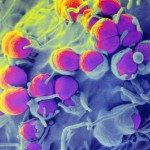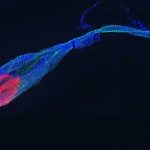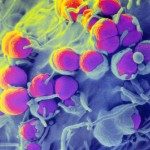Lien vers Pubmed [PMID] – 16449349
Glycobiology 2006 May;16(5):390-401
In cancer, mucins are aberrantly O-glycosylated, and consequently, they express tumor-associated antigens such as the Tn determinant (alpha-GalNAc-O-Ser/Thr). As compared with normal tissues, they also exhibit a different pattern of expression. In particular, MUC6, which is normally expressed only in gastric tissues, has been detected in intestinal, pulmonary, colorectal, and breast carcinomas. Recently, we have shown that the MCF7 breast cancer cell line expresses MUC6-Tn glycoproteins in vivo. Cancer-associated mucins show antigenic differences from normal mucins, and as such, they may be used as potential targets for immunotherapy. To develop anticancer vaccines based on the Tn antigen, we prepared several MUC6-Tn glycoconjugates. To this end, we performed the GalNAc enzymatic transfer to two recombinant MUC6 proteins expressed in Escherichia coli, using UDP-N-acetylgalactosamine: polypeptide N-acetylgalactosaminyltransferases (ppGalNAc-Ts), which catalyze in vivo the Tn antigen synthesis. We used either a mixture of ppGalNAc-Ts from MCF7 breast cancer cell extracts or a recombinant ppGalNAc-T1. In both cases, we achieved the synthesis of MUC6-Tn glycoconjugates at a semi-preparative scale (mg amounts). These glycoproteins displayed a high level of Tn antigens, although the overall density depends on both enzyme source and protein acceptor. These MUC6-Tn glycoconjugates were recognized by two anti-Tn monoclonal antibodies that are specific to human cancer cells. Moreover, the MUC6-Tn glycoconjugate glycosylated using MCF7 extracts as the ppGalNAc-T source was able to induce immunoglobulin G (IgG) antibodies that recognized a human tumor cell line. In conclusion, the large-scaled production of MUC6 with tumor-relevant glycoforms holds considerable promise for developing effective anticancer vaccines, and further studies of their immunological properties are warranted.


